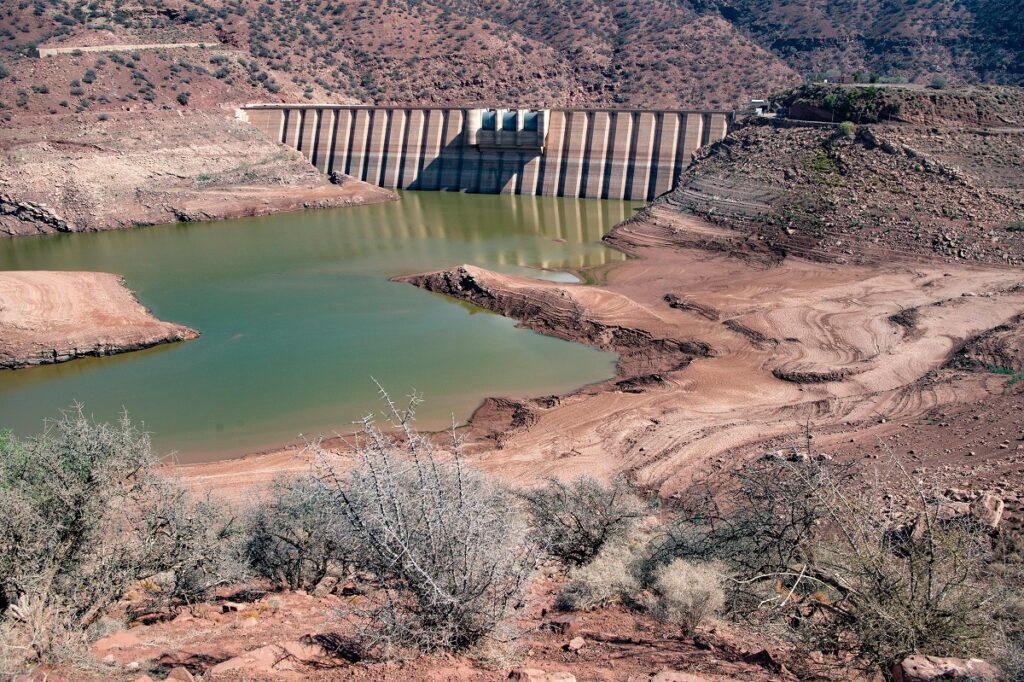- In Benin, the Fund will support the design of climate adaptation measures and best practices in port operations.
- The financing will see Morocco produce and sell 105 million cubic meters of potable water to around 1.5 million people in Safi and El Jadida.
- These measures will mitigate the imminent climate change risks associated with temperature and sea level rises and droughts.
The Canada–African Development Bank Climate Fund (CACF), established to support gender-affirmative climate change projects in Africa, has approved $36.3 million for two private sector operations to advance climate adaptation initiatives across Africa.
This amount, provided in the form of concessional loans to private sector companies, includes $18.3 million approved for the rehabilitation and expansion of the Port Autonome de Cotonou in Benin and another $18 million to support the construction of three seawater desalination plants under the Green Investment Program of the OCP Group.
Climate adaptation in Benin port operations
In Benin, CACF will support the design of climate adaptation measures and best practices in port operations. These initiatives will help mitigate the imminent climate change risks associated with temperature and sea-level rises and droughts. The project will provide job opportunities for women. This concessional loan from CACF comes on top of a EUR55 million loan from the AfDB, approved in July 2023.
In Morocco, estimates indicate that the project will produce and sell 105 million cubic meters of potable water to around 1.5 million people in the cities and vicinity of Safi and El Jadida, on the Atlantic coast of the country.
This comes at a time when Morocco is facing extreme water scarcity and is ranked 27th by the World Resource Institute among countries most at risk of chronic water shortages. Women and young girls will benefit through improved time management and health. The Bank is co-financing the project with $150 million.
The CACF is a joint effort of the Bank and Canada aimed at extending concessional loans to eligible climate change projects in Africa. To date, CACF has approved $20.4 million for two other public sector climate-change-related projects. The first is a $5.4 million concessional loan aimed at increasing and reinforcing agricultural, silvicultural, and pastoral production and value chains in Senegal while disseminating innovative good practices of adaptation for the project beneficiaries.
The second is $15 million to Nigeria to support socio-economic development and poverty reduction in the cities of Umuahia and Aba, through the construction of climate-resilient urban infrastructure systems.
Read also: COP28 countdown: new climate financing framework offers great optimism
Adaptation benefits at scale
“As we witness more severe and more frequent impacts of climate change around the world, and particularly on the African continent, it is increasingly important that we identify and address adaptation needs of the most vulnerable people and infrastructure in Africa,” said Gareth Phillips, Manager of the Climate and Environment Finance Division of the AfDB. He continued, “CACF is proving to be an extremely efficient and effective facility to deliver climate adaptation benefits at scale, and we are hopeful that we will be able to continue to support the fight against climate change thanks to the invaluable support from the Canadian government.”
In a recent analysis conducted by the Climate Policy Initiative and the Global Center for Adaptation, the concerning state of climate finance in Africa came to light. The study reveals that between 2019 and 2020, an annual average of $29.5 billion was committed to the continent as climate finance. Out of this substantial sum, about $11.4 billion, which accounts for 39 per cent of the total, was allocated for adaptation investments. This allocation signifies the importance placed on preparing African nations for the inevitable impacts of climate change.
Climate Adaptation Finance Gap in Africa
However, as the analysis delves deeper, it uncovers an alarming reality. When examining the Nationally Determined Contributions (NDCs) of African countries, it becomes evident that the adaptation finance requirements for the continent within the ten years from 2020 to 2030 are staggering, reaching close to $580 billion. The stark contrast between the committed funds and the actual adaptation needs highlights a significant disparity.
Without substantial increases in adaptation finance for Africa, a formidable gap of $453 billion will accumulate over this decade. This financial shortfall is not merely a figure on paper; it signifies a dire need for action and investment in mitigating the devastating impacts of climate change across the African continent.
As climate change continues to threaten the livelihoods and ecosystems of African nations, the urgency of closing this adaptation finance gap cannot be overstated. Both developed countries and international organizations must increase their commitments to adaptation finance for Africa, ensuring that the continent can effectively address the consequences of climate change, protect its vulnerable populations, and build resilience in the face of a changing climate.
The findings of this analysis serve as a critical wake-up call, emphasizing the need for immediate, targeted efforts to bridge this financial divide and secure a more sustainable and resilient future for Africa in the face of climate change.
